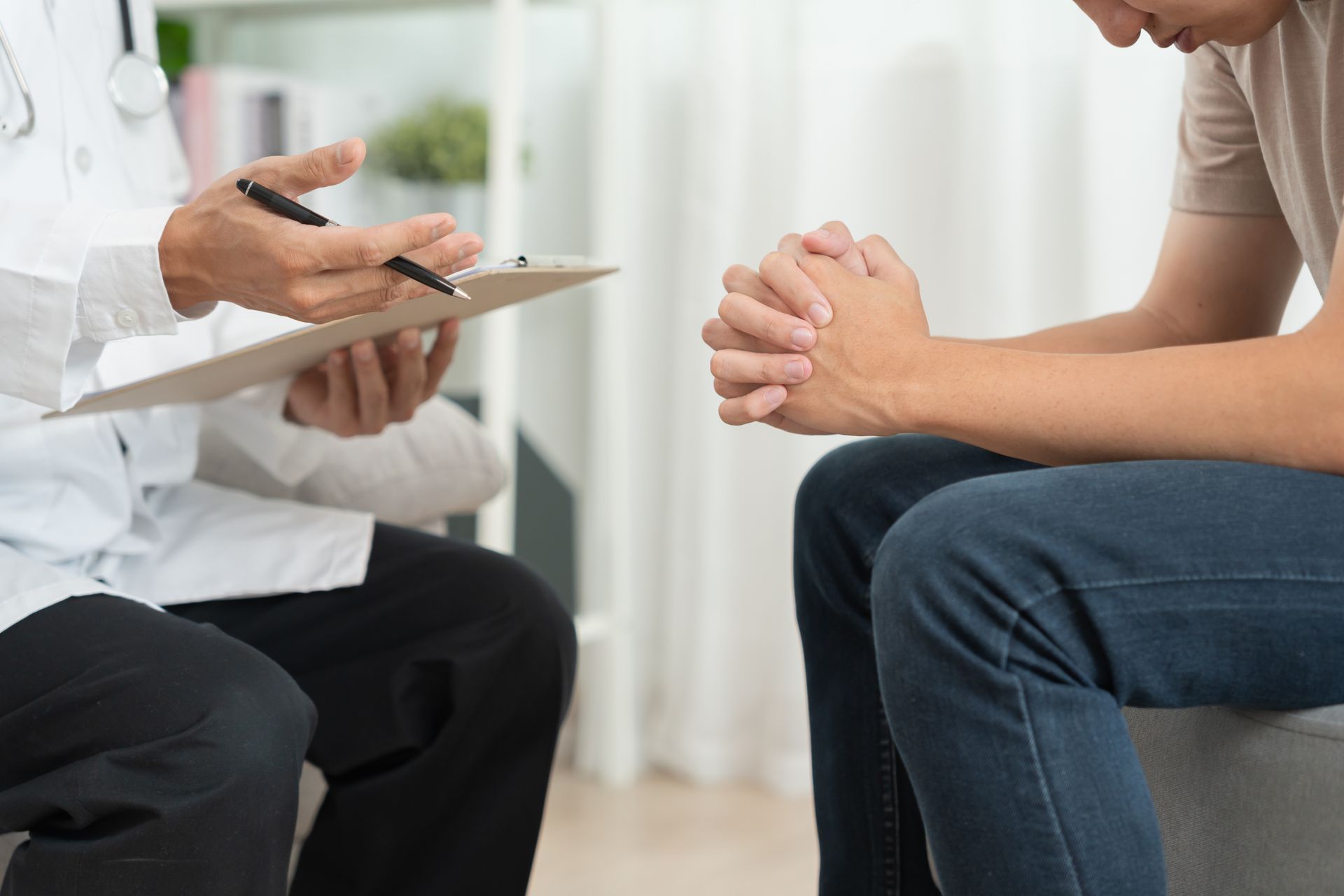Borderline Personality Disorder-How to Know If You or a Loved One has BPDc

Having a loved one with Borderline Personality Disorder (BPD) can be difficult, both for the individual and their family members. It's important to understand the warning signs of BPD in order to identify it early on and get the help that is needed.
In this article, we will look at some of the key symptoms of BPD and how to tell if you or someone you know may be suffering from this disorder.
1. Symptoms and Common Traits
2. Impact on Life Especially Relationships
3. Treatment Medications and Therapy DBT
4. Final Thoughts
Let’s get started.
Symptoms/Traits/Common co-occurring disorder-depression; suicidal tendencies
There are many symptoms and traits associated with borderline personality disorder (BPD). One of the most common is depression. People with BPD often experience extreme mood swings, which can include periods of intense sadness or despair. These episodes may last for days or weeks at a time.
Other common symptoms of BPD include:
- impulsivity
- self-harm
- suicidal thoughts or behaviours
- intense fear of abandonment
- unstable relationships
- explosive anger
- feeling empty or hopeless
People with BPD may also have co-occurring disorders, such as anxiety, eating disorders, or substance abuse.
If you have borderline personality disorder (BPD), you may have intense episodes of anger, anxiety, and depression. You may feel like you're "walking on eggshells" around people because you're afraid of being rejected or abandoned. You may self-harm or even attempt suicide.
A diagnosis of BPD is made when these symptoms are present for at least six months and interfere with your ability to function in work, school, or social situations. BPD is often diagnosed in young adults, although the symptoms can begin in childhood or adolescence.
People with BPD are also at risk for other mental health disorders, such as anxiety disorders, eating disorders, and depression. Suicide is also a serious concern; about 4 percent of people with BPD die by suicide.
People with Borderline Personality Disorder (BPD) have a severe risk of suicide, which requires constant attention. One in ten BPD patients commits suicide. The suicide rate for those with BPD is comparable to those with schizophrenia and serious mood disorders. However, 1% of the overall population suffers from schizophrenia, compared to 2-3% of the general population who are affected by BPD.
As a result, schizophrenia has a 2-3 times higher suicide rate than BPD. This tragic consequence is not easily avoidable and often does not happen while the individual is receiving therapy; instead, it happens after the patient does not recover and/or when treatment has failed. Co-morbid problems including drug addiction, food disorders, or impulsive sex that results in diseases may be a major factor in many BPD fatalities.
If you have symptoms of BPD, it’s important to seek help from a doctor. Treatment for BPD usually involves psychotherapy and medications. With the right treatment and support, you can manage your symptoms and lead a fulfilling life.
Impact: Impact on Life, Especially Relationships
If you or a loved one has Borderline Personality Disorder (BPD), you may be wondering what kind of impact it will have on your life, especially your relationships.
BPD can be a very difficult disorder to live with, and it can take a toll on all aspects of your life. However, with the right treatment and support, it is possible to manage BPD and lead a happy and fulfilling life.
One of the most difficult things about BPD is the way it can affect your relationships. People with BPD often have trouble maintaining healthy boundaries in their relationships. They may become overly dependent on others, or they may push people away out of fear of abandonment. These behaviors can make it difficult to sustain healthy and long-lasting relationships.
If you have BPD, you may benefit from therapy that focuses on helping you to develop healthier ways of relating to others. You can also learn skills for managing your symptoms, which can help you to maintain healthier relationships. With treatment and support, it is possible to have fulfilling and meaningful relationships despite having BPD.
No matter what, it is important to remember that BPD does not have to define who you are or limit your potential. With the right help and support, you can lead a happy and productive life despite having BPD.
Treatment-Medications and Therapy (DBT)
There are many different medications and therapies that can be used to treat BPD. While there is no one “right” treatment, certain medications and therapies may be more effective for certain people.
DBT is a type of therapy that has been shown to be particularly effective in treating BPD. DBT focuses on helping people to regulate their emotions, develop healthy coping skills, and improve interpersonal relationships.
Medication is also often used to treat the symptoms of BPD. Commonly prescribed medications include antidepressants, antipsychotics, and mood stabilizers. It is important to note that medication should be taken under the guidance of a qualified healthcare professional, as it can have serious side effects if misused or overused.
It is important to remember that there is no one-size-fits-all approach to the treatment of BPD, and the best treatment plan will depend on each individual’s unique needs. It is important to work with a qualified healthcare professional to develop a plan that works for you.
Final Thoughts
It can be hard to know if you or a loved one has borderline personality disorder (BPD). The symptoms can be similar to other mental health disorders, and they can vary from person to person. If you’re concerned that you or someone you care about may have BPD, talk to a mental health professional. They can help you figure out if it’s BPD or something else.
There is no single cause of BPD, but it is often linked to a history of trauma, such as childhood abuse or neglect. Other risk factors include having a family member with the disorder and other mental health disorders.
If you have BPD, you may feel like you’re on an emotional roller coaster. You may have intense mood swings, impulsive behaviors, and relationships that are tumultuous and short-lived. You may also engage in self-harm or struggle with suicidal thoughts.
While there is no cure for BPD, treatment can help. Therapies such as dialectical behavior therapy (DBT) and cognitive behavioral therapy (CBT) can be effective in managing symptoms. Medication may also be helpful for some people with BPD.
If you think you might have BPD, reach out for help. There are many resources available to support you on your journey to recovery. We offer same-day and next-day appointments.
Please feel free to book an appointment today at
https://www.virtualpsychiatriccare.com/map











